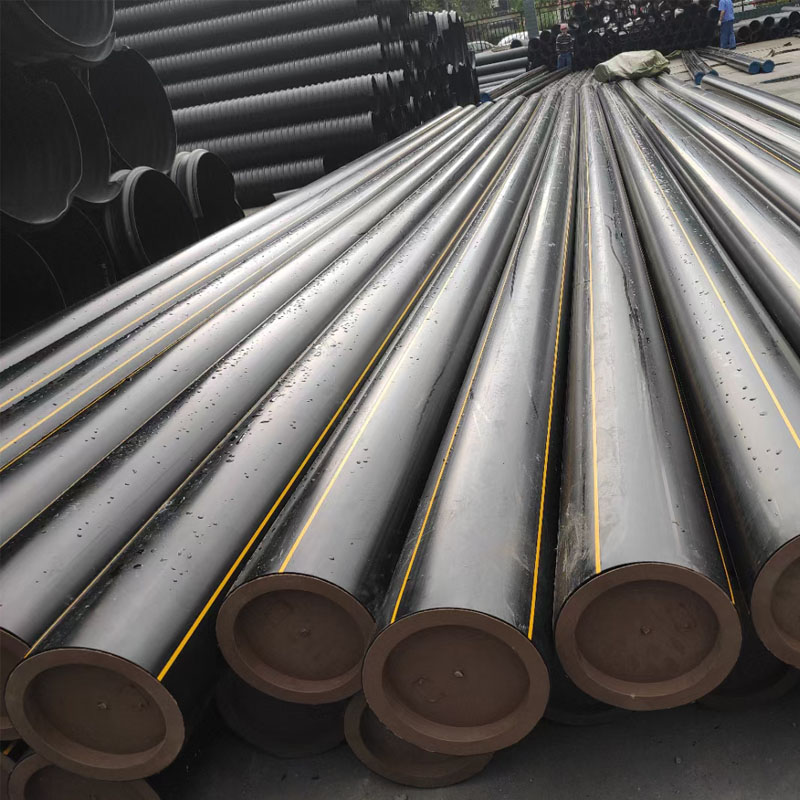Oct . 06, 2024 11:21 Back to list
types of pipes pvc products
Understanding the Types of PVC Pipe Products
Polyvinyl chloride (PVC) is a versatile plastic material widely used in various applications, particularly in the manufacturing of pipes. PVC pipes are durable, resistant to corrosion, and lightweight, making them an ideal choice for both residential and commercial uses. Understanding the different types of PVC pipe products can help you make informed decisions for plumbing, drainage, and other construction needs.
Types of PVC Pipes
1. Schedule 40 PVC Pipe Schedule 40 PVC pipes are the most commonly used type of PVC pipe in residential and commercial applications. These pipes are available in various diameters and can handle moderate pressure levels. They are ideal for water distribution, irrigation systems, and drainage applications. Schedule 40 pipes are known for their excellent resistance to corrosion and chemicals, making them suitable for a wide range of environments.
2. Schedule 80 PVC Pipe Schedule 80 PVC pipes are thicker and stronger than Schedule 40 pipes, providing enhanced durability and resistance to higher pressure. They are often used in industrial applications where higher pressure and heavy-duty usage are involved. Schedule 80 pipes are available in various sizes and are suitable for chemical processing, water treatment facilities, and other high-pressure applications.
3. PVC Pressure Pipe Specifically designed for carrying pressurized fluids, PVC pressure pipes are manufactured to withstand significant internal forces. These pipes are available in different schedules and diameters, making them adaptable to various applications. They are often used in municipal water systems, irrigation, and fire protection systems, providing reliable performance under pressure.
4. PVC Drainage Pipe PVC drainage pipes are specifically designed for non-pressurized applications, such as stormwater drainage and sewage systems. These pipes typically have a smooth interior surface that promotes efficient flow, reducing the risk of clogs and backups. PVC drainage pipes are lightweight and easy to install, making them a popular choice for both residential and commercial drainage systems.
5. PVC Conduit Pipe Used primarily for electrical applications, PVC conduit pipes protect electrical wiring from damage and environmental factors. These pipes are available in rigid and flexible forms, allowing for easy installation around bends and corners. PVC conduit is non-conductive and resistant to moisture, making it an excellent choice for outdoor wiring and underground installations.
types of pipes pvc products

6. Flexible PVC Pipe Flexible PVC pipes offer versatility for various applications, particularly in situations where rigid pipes may be difficult to install. These pipes can bend without breaking and are often used in swimming pool installations, irrigation systems, and drainage solutions. Flexible PVC is also resistant to UV rays and chemicals, which extends its lifespan outdoors.
7. PVC Sewer Pipe Specifically designed for sewage and wastewater systems, PVC sewer pipes are engineered to handle the harsh conditions associated with these applications. These pipes have a smooth interior to facilitate easy flow and are resistant to degradation from waste materials and chemicals. PVC sewer pipes are typically available in larger diameters to accommodate heavy flow volumes.
Choosing the Right PVC Pipe
When selecting the right PVC pipe for your project, it's essential to consider several factors
- Application Determine the primary use of the pipe—whether it's for plumbing, drainage, electrical conduit, or industrial purposes. - Pressure Ratings Understand the pressure requirements of your application to choose the correct schedule of pipe. - Diameter Choose the right size based on the flow requirements and installation space. - Local Codes Verify local building codes and regulations to ensure compliance, as some areas have specific requirements for plumbing and drainage systems. - Environmental Factors Consider the environmental conditions where the pipe will be installed, such as exposure to UV light, temperature fluctuations, or chemicals.
Conclusion
PVC pipes are an essential component in modern construction and infrastructure. Their durability, resistance to corrosion, and lightweight nature make them a preferred choice for various applications. By understanding the different types of PVC pipe products and their specific uses, you can ensure that you select the right materials for your projects, leading to improved performance and longevity. Whether for residential plumbing, industrial applications, or electrical installations, PVC pipes offer a reliable and cost-effective solution.
-
High-Quality PVC Borehole Pipes Durable & Versatile Pipe Solutions
NewsJul.08,2025
-
High-Quality PVC Perforated Pipes for Efficient Drainage Leading Manufacturers & Factories
NewsJul.08,2025
-
High-Quality PVC Borehole Pipes Durable Pipe Solutions by Leading Manufacturer
NewsJul.08,2025
-
High-Quality PVC Borehole Pipes Reliable PVC Pipe Manufacturer Solutions
NewsJul.07,2025
-
High-Quality UPVC Drain Pipes Durable HDPE & Drain Pipe Solutions
NewsJul.07,2025
-
High-Quality Conduit Pipes & HDPE Conduit Fittings Manufacturer Reliable Factory Supply
NewsJul.06,2025

